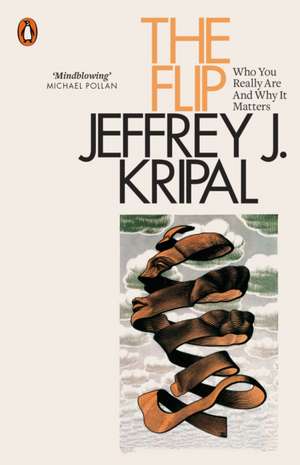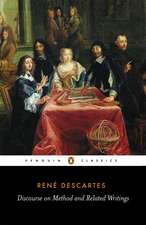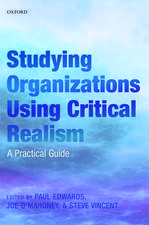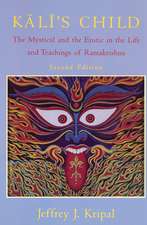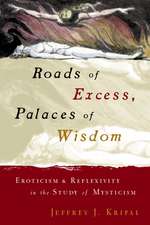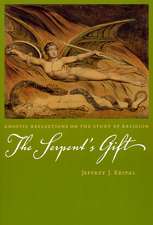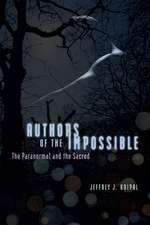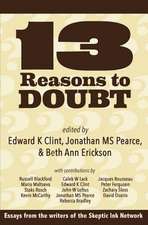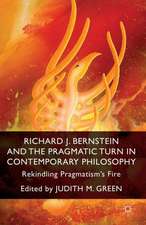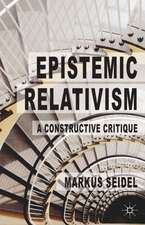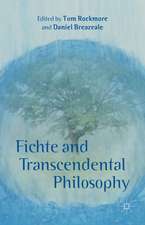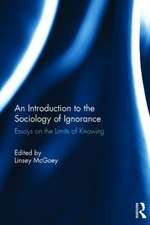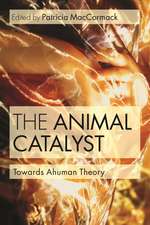The Flip: Who You Really Are and Why It Matters
Autor Jeffrey J. Kripalen Limba Engleză Paperback – 22 apr 2020
Why do we know so much more about the cosmos than our own consciousness? Are there limits to the scientific method? Why do we assume that only science, mathematics and technology reveal truth?
The Flipshows us what happens when we realise that consciousness is fundamental to the cosmos and not some random evolutionary accident or surface cognitive illusion; that everything is alive, connected, and 'one'. We meet the people who have made this visionary, intuitive leap towards new forms of knowledge: Mark Twain's prophetic dreams, Marie Curie's séances, Einstein's cosmically attuned mind. But these forms of knowledge are not archaic; indeed, they are essential in a universe that has evolved specifically to be understandable by the consciousnesses we inhabit.
The Flippeels back the layers of our beliefs about the world to reveal a visionary, new way of understanding ourselves and everything around us, with huge repercussions for how we live our lives. After all, once we have flipped, we understand that the cosmos is not just human. The human is also cosmic.
Preț: 47.58 lei
Preț vechi: 56.92 lei
-16% Nou
Puncte Express: 71
Preț estimativ în valută:
9.10€ • 9.51$ • 7.54£
9.10€ • 9.51$ • 7.54£
Carte disponibilă
Livrare economică 14-26 martie
Livrare express 27 februarie-05 martie pentru 26.70 lei
Preluare comenzi: 021 569.72.76
Specificații
ISBN-13: 9780141992563
ISBN-10: 0141992565
Pagini: 240
Dimensiuni: 129 x 198 x 14 mm
Greutate: 0.18 kg
Editura: Penguin Books
Colecția Penguin
Locul publicării:London, United Kingdom
ISBN-10: 0141992565
Pagini: 240
Dimensiuni: 129 x 198 x 14 mm
Greutate: 0.18 kg
Editura: Penguin Books
Colecția Penguin
Locul publicării:London, United Kingdom
Notă biografică
Jeffrey
J.
Kripalis
the
Associate
Dean
of
Humanities
and
holds
the
J.
Newton
Rayzor
Chair
in
Philosophy
and
Religious
Thought
at
Rice
University
and
is
the
associate
director
of
the
Center
for
Theory
and
Research
at
the
Esalen
Institute
in
Big
Sur,
California.
He
has
previously
taught
at
Harvard
Divinity
School
and
Westminster
College
and
is
the
author
of
eight
books,
includingThe
Flip.
He
lives
in
Houston,
Texas.
Recenzii
One
of
the
most
provocative
new
books
of
the
year,
and,
for
me,
mindblowing
Wonderfully rich. . . . Reading this book is an embodied experience; it is yoga for the mind.The Flipis an important book that deserves a broad readership both inside and outside the academy
[The Flip] will ignite conversations about the limits of science and the potential for dramatic shifts in perspective
[Kripal offers] a genuinely hopeful vision of what we yet could be in the mirror of what we have been
Kripal makes many sympathetic points about the present spiritual state of America. . . . [He] continues to believe that spirituality and science should not contradict each other, and that the Cartesian split between mind and body can be transcended
[His] work will likely become more and more relevant to more and more areas of inquiry as the century unfolds. It may even open up a new space for Americans to reevaluate the personal and cultural narratives they have inherited, and to imagine alternative futures.
Wonderfully rich. . . . Reading this book is an embodied experience; it is yoga for the mind.The Flipis an important book that deserves a broad readership both inside and outside the academy
[The Flip] will ignite conversations about the limits of science and the potential for dramatic shifts in perspective
[Kripal offers] a genuinely hopeful vision of what we yet could be in the mirror of what we have been
Kripal makes many sympathetic points about the present spiritual state of America. . . . [He] continues to believe that spirituality and science should not contradict each other, and that the Cartesian split between mind and body can be transcended
[His] work will likely become more and more relevant to more and more areas of inquiry as the century unfolds. It may even open up a new space for Americans to reevaluate the personal and cultural narratives they have inherited, and to imagine alternative futures.
